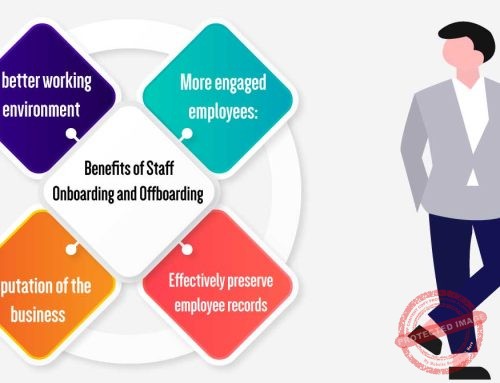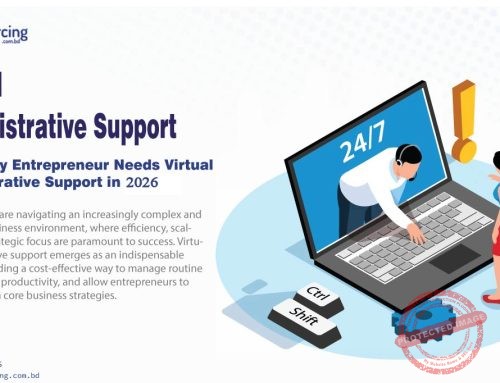A virtual business number can significantly enhance customer service by offering a unified point of contact accessible from anywhere, at any time.
This flexibility ensures that customer calls can be routed to the right department or individual without the limitations of geographical location or specific office hours, leading to quicker response times and reduced wait times for customers.
Furthermore, virtual business number features such as IVR systems allow customers to navigate through options to find the information they need or reach the appropriate person, enhancing self-service options and efficiency.
Virtual numbers can also support call recording, which provides valuable insights into customer interactions and enables continuous improvement of service quality.
Additionally, because virtual numbers can easily scale with your business. They ensure that customer service capabilities can grow and adapt without the need for significant infrastructure investment. This adaptability, combined with a dedicated business number’s professional image, can greatly improve customer satisfaction and loyalty.
7 Benefits of Virtual Business Numbers for Remote Work
Virtual business numbers are incredibly beneficial for remote work environments, offering key advantages that include:
- Flexibility: Employees can answer calls from anywhere, using any internet-connected device, enhancing work-life balance and productivity.
- Professionalism: A dedicated business number presents a professional image, regardless of employees working from different locations.
- Cost Efficiency: Eliminates the need for traditional phone systems and reduces overhead costs associated with physical office spaces.
- Scalability: Easily add new lines or extensions as your remote workforce grows, without significant infrastructure investments.
- Global Reach: Set up local or international numbers to expand your market presence without needing a physical office in those locations.
- Enhanced Features: Access to advanced call management features such as call forwarding, voicemail, IVR, and integration with CRM systems improves customer interaction and business operations.
- Better Customer Service: Enables 24/7 customer support by routing calls to remote workers in different time zones, ensuring that customer inquiries are addressed promptly.
How Do Virtual Numbers Facilitate Remote Work?
Virtual business numbers support remote work by offering a versatile communication tool that meets the varied needs of a dispersed team. Employees can make and receive calls globally with any internet-connected device, overcoming geographical limits and ensuring seamless business operations.
This capability is crucial for maintaining a consistent and professional image with customers, as calls can be routed to the appropriate person or department regardless of their physical location.
Moreover, virtual numbers come with advanced features such as voicemail, call forwarding, and IVR systems, which streamline call management and improve customer service.
They also support scalability, enabling businesses to easily add or remove numbers as their team grows or their needs change, without the need for physical infrastructure. This blend of mobility, functionality, and scalability makes virtual business numbers an essential tool for supporting and enhancing remote work.
Solving Common Challenges of Virtual Business Numbers
Virtual business numbers are pivotal in modern business communication, offering flexibility, cost efficiency, and a professional image. However, they come with their own set of challenges. Understanding and addressing these challenges can help businesses maximize the benefits of their virtual numbers:
- Call Quality and Reliability: Internet dependency means call quality is subject to the strength and stability of the Internet connection. Solutions include ensuring robust internet infrastructure and considering dedicated VoIP bandwidth to improve call quality.
- Security and Privacy Concerns: VoIP systems can be vulnerable to hacking and phishing attacks. Implementing strong security measures like secure VoIP providers, two-factor authentication, and employee security training can mitigate these risks.
- Complexity in Setup and Management: Virtual business numbers come with features that can be complex to set up and manage. Choosing a provider with a user-friendly interface and customer support, coupled with proper training for employees, can ease this process.
- Integration with Existing Systems: Businesses often face challenges integrating virtual numbers with their current CRM, sales, or also customer service software.
- Regulatory Compliance: Different countries have various regulations regarding the use of virtual numbers. Businesses must ensure compliance with local laws by choosing providers that are aware of and adhere to these regulations.
- Customer Perception: Some customers may prefer traditional contact methods or have reservations about the legitimacy of virtual numbers. Educating customers about the security and reliability of virtual communication can help overcome these perceptions.
Can Virtual Business Numbers Help Your Business Go Global?
Virtual business numbers are a powerful tool for businesses looking to expand their global footprint. By enabling companies to establish a local presence without a physical office, these numbers can significantly lower the barriers to entering new markets.
Customers in international locations are more likely to engage with a business that has a local contact number. It also suggests accessibility and a commitment to serving their region.
Furthermore, virtual numbers come with features such as call forwarding, voicemail, and IVR. Which can be tailored to support different languages and time zones, enhancing customer experience and satisfaction. This not only improves global customer service but also supports marketing efforts by providing a local identity.
With the cost-effectiveness and scalability of virtual business numbers. Companies can strategically target and grow their operations in new markets with minimal investment and complexity.
Why Should Your Business Number Switch to a Virtual Business Number?
Switching to a virtual business number offers several compelling advantages for businesses aiming to modernize communication, enhance flexibility, and improve customer engagement.
This technology allows for seamless call management across multiple devices and locations, ensuring that employees can work from anywhere without missing important calls. It eliminates geographical constraints, enabling businesses to establish a local or international presence without the need for physical offices.
Advanced features like call forwarding, IVR, and integration with CRM systems streamline operations and boost customer service efficiency. Additionally, virtual numbers are cost-effective, reducing the need for expensive traditional phone systems and infrastructure.
This adaptability, combined with the professional image that a dedicated business number provides. Makes virtual business numbers an essential tool for businesses looking to stay competitive in a rapidly evolving digital landscape.
3 Top Tips for Using Virtual Business Numbers
- Maximize IVR Systems: Utilize Interactive Voice Response (IVR) systems to efficiently route calls to the appropriate department or individual. Tailoring your IVR menu to be clear and concise can significantly enhance the caller experience, ensuring that customers are quickly connected with the help they need.
- Integrate with Business Tools: Connect your virtual business number with your CRM. And other business tools to streamline workflows and improve customer interactions. This integration enables real-time access to customer data during calls. Allowing for personalized and informed communication, virtual business numbers can boost satisfaction and efficiency.
- Monitor and Analyze Call Data: Regularly review call logs, analytics, and performance metrics provided by your virtual number service. This data can reveal insights into call volumes, peak calling times, and caller satisfaction. Use this information to adjust your call handling strategies, staff allocation, and IVR menus to better meet customer needs and improve overall service quality.
Bottom Line
Virtual business numbers represent a transformative shift in the way businesses manage communication, offering unparalleled flexibility, scalability, and efficiency. They enable companies to maintain a professional image, reach global markets with a local presence, and adapt to the evolving demands of remote work.
By leveraging advanced features like IVR, call forwarding, and integration with key business systems. Businesses can enhance customer experiences, streamline operations, and improve team productivity.
As we move further into a digital-first world, the adoption of virtual business numbers will continue to be a critical strategy for businesses aiming to stay competitive, responsive, and connected, regardless of their size or industry. Embracing this technology not only addresses immediate communication needs. But also positions businesses for sustainable growth and success in the future.
FAQs
Can I have multiple virtual business numbers?
Yes, businesses can have multiple virtual numbers, including numbers with different area codes or international numbers. This is beneficial for companies looking to establish a presence in various markets or departments within the same organization.
Are virtual business numbers secure?
Yes, when provided by reputable service providers, virtual business numbers come with various security features such as encryption, secure data transmission, and compliance. However, businesses should also implement best practices for cybersecurity to enhance protection.
How do virtual business numbers work?
Virtual business numbers use VoIP technology to route calls to your preferred devices, such as smartphones, laptops, or desk phones. You can set up call forwarding, IVR systems, and custom greetings to efficiently manage incoming calls.






